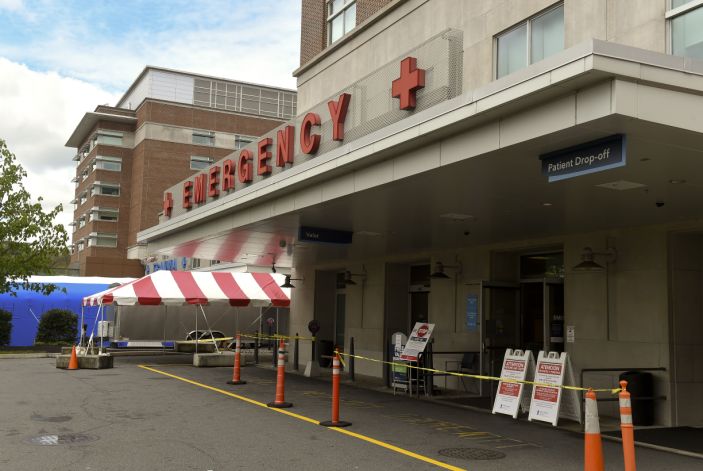The death of Supreme Court Justice Ruth Bader Ginsburg last week, at the age of 87, has sparked a massive political debate six weeks before the election—with President Trump, much to the dismay of congressional Democrats, set to announce his nominee to replace Ginsburg by the end of this week.
But there’s another, more apolitical group that may have reason to worry about Trump naming yet another conservative justice to the highest court in the land: the health care industry. On Nov. 10, one week after Election Day, the Supreme Court is set to begin hearing arguments in a case challenging the constitutionality of the Affordable Care Act (ACA), the landmark health care legislation also known as Obamacare.
With the departure of one of the court’s leading liberal voices, the future of the ACA is now increasingly uncertain—as are the revenues of U.S. health care providers who are now serving millions of insured patients they wouldn’t otherwise without Obamacare, according to analysts at credit rating agency Fitch.
“A repeal of the ACA, which would result in fewer insured patients and lower reimbursement rates, would negatively affect U.S. hospital revenues,” the Fitch analysts wrote in a note Tuesday.
That repeal looks increasingly likely given the way things currently stand. Should Trump and Senate Republicans succeed in confirming a new Supreme Court Justice to replace Ginsburg before the election—presumably one with more conservative views who may regard the ACA’s individual mandate provision unfavorably—that could swing the court firmly to the right, raising the chances that the mandate is ruled unconstitutional and the entire law is thrown out.
And if Ginsburg is not replaced before the election, there’s every chance that the Supreme Court will proceed with an eight-justice bench—one that, in Ginsburg’s absence, would have a decidedly conservative bend to it.
As such, the vacancy caused by Ginsburg’s passing “raises uncertainty across the health care sector,” Fitch analysts say. They note that the ACA has “had a positive effect on the financial profiles of most health care [companies] since going into effect in 2010, due to an increase in insured patients and a reduction of uninsured patients who self-pay.”
Roughly 25 million Americans have health insurance through Obamacare’s insurance expansion provisions, and the law has brought the number of uninsured Americans down by around 5%, to 8.5% currently. And the ACA is even more important given the economic impact of the coronavirus pandemic. According to Fitch, it “serves as a backstop for employer-sponsored health care if jobless rates remain structurally high.”
The law’s repeal—and the millions of Americans who would lose their health insurance as a result—would place “greater stress” on the operating margins of health care providers, Fitch says. It would particularly hurt nonprofit and publicly operated hospitals, which provide care to a larger number of uninsured and Medicaid patients and would see “a reduction in revenue due to increased uninsured care”
While the credit rating agency says it expects providers to “adapt to new health care policies in order to protect credit profiles,” the end of Obamacare and a resulting “sustained reduction in cash flow” for health care operators would still place pressure on those companies’ credit ratings in the corporate debt sphere.
More politics coverage from Fortune:
- The 13 Trump officials under fire for violating the Hatch Act
- Sexual misconduct allegations are playing out just like they did in 2016—even after the #MeToo movement
- Why online voting will have to wait
- President Trump’s “patriotic education” commission can’t actually tell schools what to teach
- The activist employee hasn’t gone away




